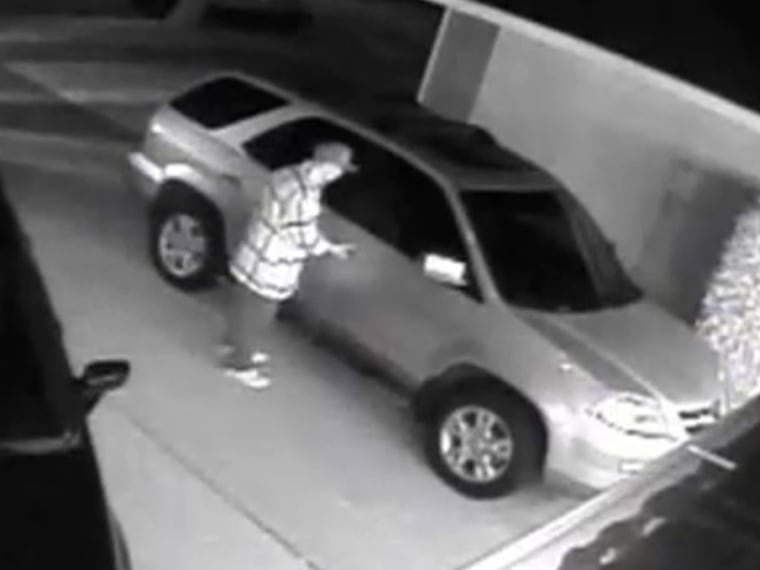There's a new wave of auto thefts that police can't figure out. So could you be at risk? TODAY National Investigative Correspondent Jeff Rossen looked into it.
This is a real mystery. You think when you lock your car and set the alarm, your car is pretty safe. But criminals have designed a new high-tech gadget giving them full access to your car. It's so easy, it's like the criminals have your actual door remote. Police are so baffled they want to see if you can help crack the case.
A Long Beach, Calif., surveillance video shows a thief approaching a locked SUV in a driveway. Police say he's carrying a small device in the palm of his hand. You can barely see it, but he aims it at the car and pops the locks electronically. He's in, with access to everything. No commotion at all.
Then his accomplice shows up and hits another car, using that same handheld device.
Know a scam? Been ripped off? To email Rossen Reports, click here.
Long Beach Deputy Police Chief David Hendricks is mystified. "This is bad in the sense we're stumped," he told us. "We are stumped and we don't know what this technology is."
He said it's almost like the thieves are cloning your car remote, which is virtually impossible to do. Here's why: On most cars, when you hit the unlock button, it sends a code to the car. That code is encrypted and constantly changing — and should be hackproof.
Jim Stickley is one of the country's leading security experts. He's watched the tapes, and he's stumped too.
"This is really frustrating because clearly they've figured out something that looks really simple and whatever it is they're doing, it takes just seconds to do," Stickley said. "And you look and you go, 'That should not be possible.'"
It's happening from California to Illinois. Michael Shin's home security camera caught a crook breaking into his Honda Accord using a similar device. But you'd never know it. On the video, the crook looks like the owner of the car, unlocking the doors remotely. The thief stole cash and an expensive cell phone.
"I felt pretty unsafe," Shin said. "It was shocking. It just opens magically without him having to do anything."
Adding to the mystery, police say the device works on some cars but not others. Other surveillance videos show thieves trying to open a Ford SUV and a Cadillac, with no luck. But an Acura SUV and sedan pop right open. And they always seem to strike on the passenger side. Investigators don't know why.
"We've reached out to the car manufacturers, the manufacturers of the vehicle alarm systems: Nobody seems to know what this technology is," Hendricks told us. "When you look at the video and you see how easy it is, it's pretty unnerving."
This is so new, police don't know how widespread it is. But no question, they're desperate to track down one of these devices so they can see how it works.
Until then, here's the takeaway: Police say, don't leave anything valuable in your car, even if it's parked in your own driveway. That includes your garage door opener, because if the thieves get that, they're suddenly in your house. Also, keep your car registration in your wallet; don't leave it in the glove compartment. Police say with that information, criminals can steal your identity.
But right now, the priority for police is finding this device so they can figure out what it is. If you have any information that could help, we want to hear from you. Click here to send us an email.
